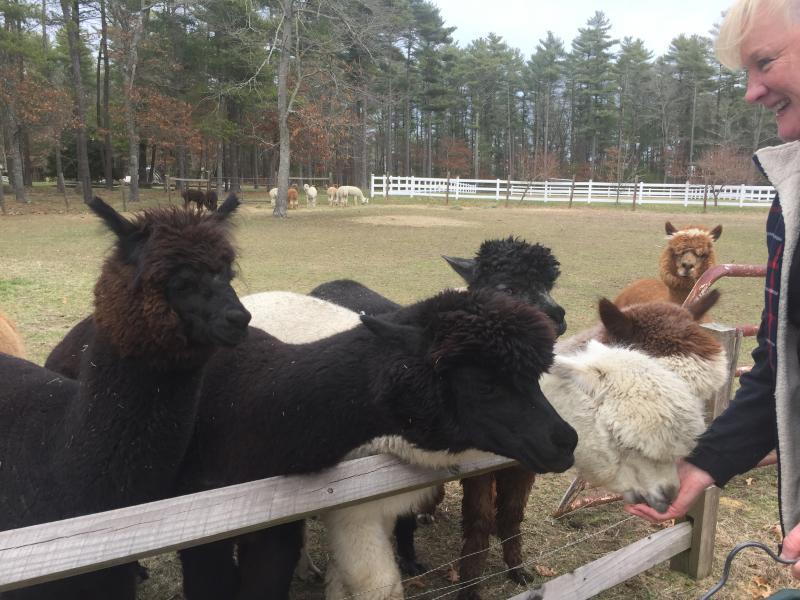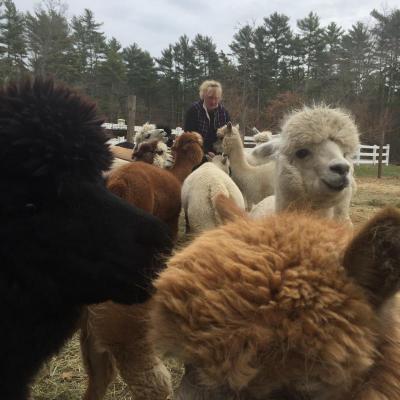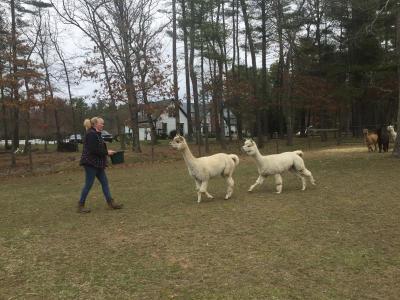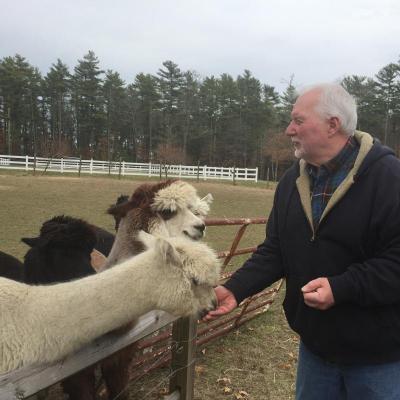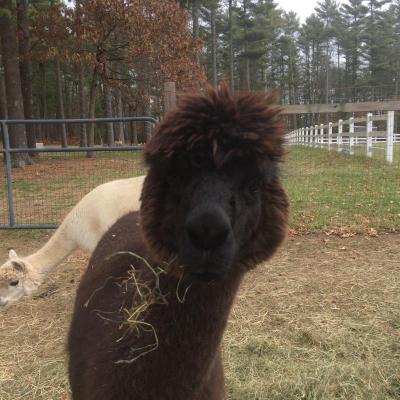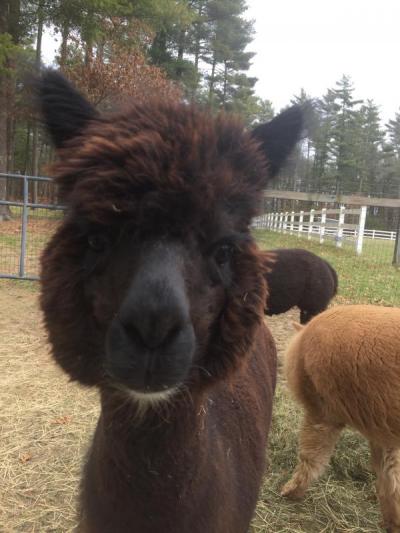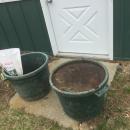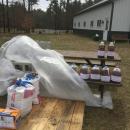At Sippican River Farm, pandemic changes loom
ROCHESTER — If the shearer for Sippican River Farm finds it too cumbersome to travel up from South Carolina in the face of the coronavirus this year, the farm’s owners, Cheryl and Bronie Rozenas may have to do the huge task themselves.
As of now, their shearer is still working, and set May 15 as the Sippican River Farms date. However, if he decides it is no longer safe for him to work, the Rozenas will have to shear their 21 alpacas themselves.
Right now, Cheryl explained that the alpacas probably have a three inch coat. By mid-May it will likely be four to five inches.
The pair decide which alpacas to breed each year based on the quality and color of the fibers that will likely be produced. Most of the farm’s alpacas are female, and the Rozenas usually sell the male alpacas. This year, two of the farms alpacas are pregnant.
The shorn fibers are considered more valuable if they “bundle” or clump together. An alpaca whose fibers do not bundle and look fluffy has less valuable fleece. Also valuable are fibers that “crimp,” or zigzag.
Although the Rozenas, usually host school groups to the farm in the spring, they had to cancel those this year.
With fewer visitors on the farm, the Rozenas have started tackling various projects. Bronie took down a dead tree, and cut a lot of firewood. The two have been making “alpaca bean tea,” which despite its edible-sounding name is a liquid fertilizer made from the animals’ beanlike excrement.
Cheryl found a recipe online for the fertilizer, which is made by soaking the waste in water either in bags or just loose, and straining afterwards. They also have been selling alpaca mulch, which is made from throwaway fibers.
For now, unconcerned with such complexities, the alpaca continue to enjoy feedings, their pasture, dust baths, and hanging out with the deer, which regularly visit and make the rounds of the farm.



